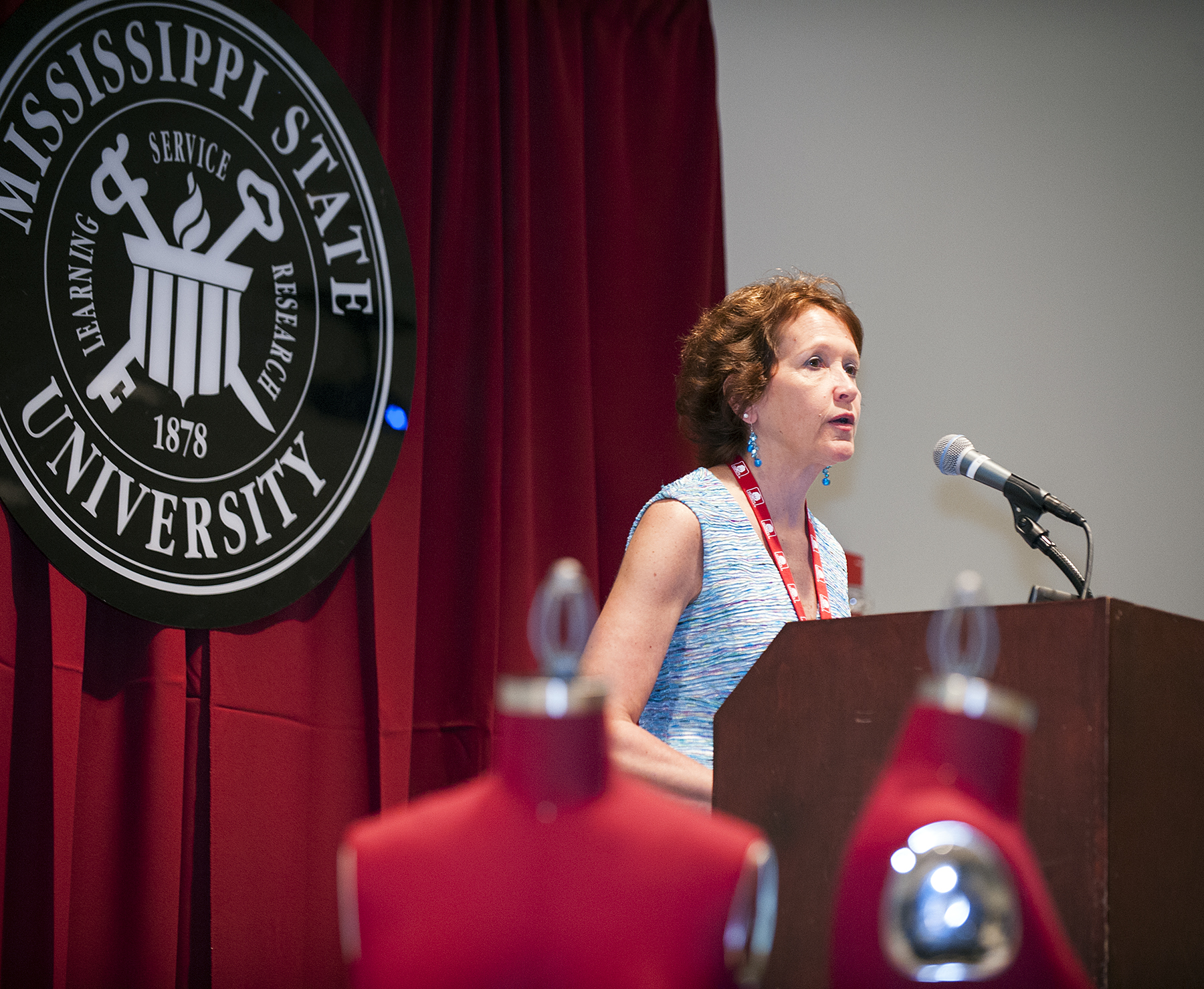Contact: Leah Barbour

Photo by: Russ Houston
Mississippi State apparel, textiles and merchandising students should consider applying for internships and jobs with the U.S. Department of Commerce's Office of Textiles and Apparel, according to an OTEXA international trade specialist.
During her Wednesday [April 23] Cotton Summit presentation, Maria D'Andrea told university students that their MSU education and training is preparing them to benefit the nation. Domestic production and international import of textiles and apparel is increasing, and the federal government needs qualified individuals to inform policymaking.
"What we're doing now impacts what you will do in the future, and I can see the future of our industry in you," D'Andrea told the students. "I look forward to continuing working with the university. We have an internship program, so apply, come to Washington and learn about policy with us."
Also part of the MSU School of Human Sciences' Charles E. Lindley Lecture Series, D'Andrea's keynote Cotton Summit speech, "OTEXA: Helping to Shape Trade & Domestic Policy," explored how textiles and apparel impact U.S. global concerns.
She focused on the worldwide partnerships and trade agreements driving the apparel and textiles industry. D'Andrea also emphasized the importance of "Made in USA" labeling.
"We make some of the most advanced products in the world, and we have one of the most robust and gigantic industries in the world," she said. "We still produce yarns and fabrics for trousers and shirts and other textiles for all the aspects of our lives; we're globally competitive, especially in terms of more advanced products.
"We are an important economic sector in terms of output--$70 billion in 2013," she added.
D'Andrea works with nations across Europe, the Middle East, Asia and Africa. Her work focuses on policymaking impacting U.S. fiber, textile, apparel, footwear and travel goods.
MSU's Cotton Summit, sponsored by Cotton Inc. and the university's School of Human Sciences, helped students network with professionals involved with every aspect of cotton.
"We've had an opportunity this year to explore other aspects of cotton," said Phyllis Miller, professor of apparel, textiles and merchandising. "We've been able to bring a person from Washington who negotiates import/export deals, and the students are enjoying and gaining so much."
Miller and assistant professor Charles E. Freeman co-wrote the grant funding the first-ever MSU Cotton Summit, the 2014 Cotton Student Sponsorship Program.
Freeman said he hopes this Cotton Summit is the first of many.
Learn more about MSU's apparel, textiles and merchandising program at www.humansci.msstate.edu/students/atm.asp.
Visit www.msstate.edu to discover more about MSU.